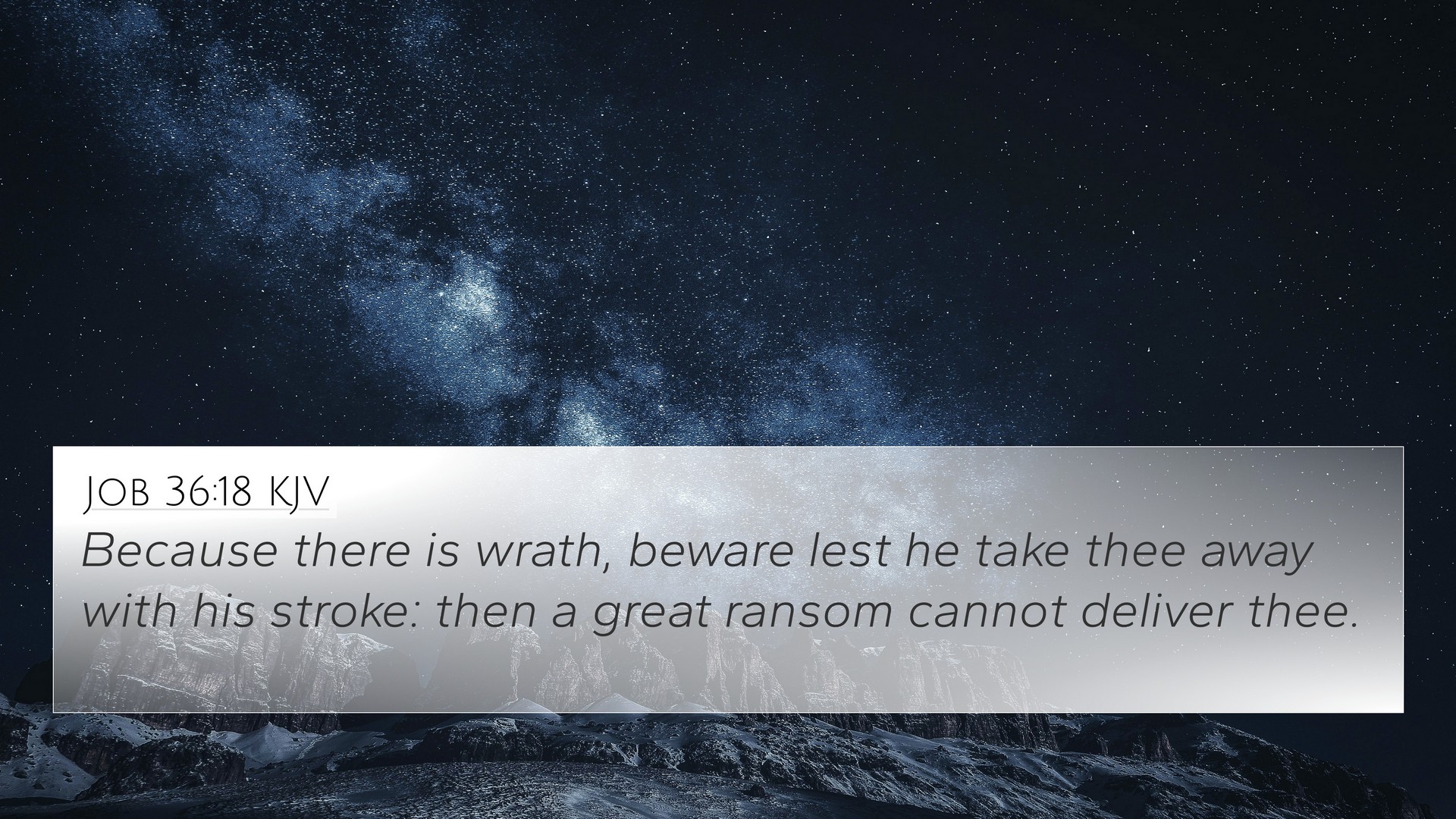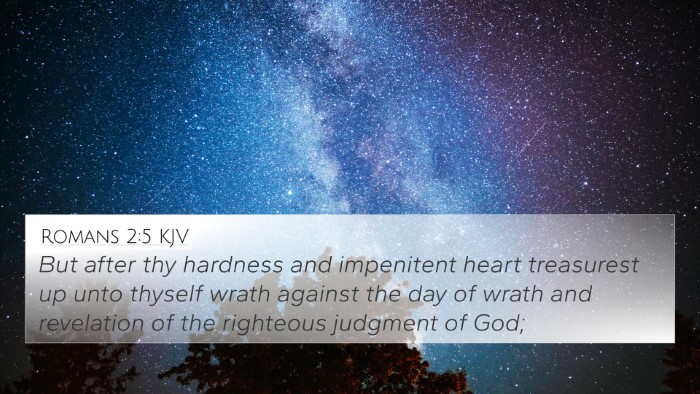Understanding Job 36:18
Job 36:18 is a powerful verse that conveys the importance of righteousness and the peril of being entangled in wrongdoing. Various public domain commentaries, including those by Matthew Henry, Albert Barnes, and Adam Clarke, provide valuable insights that deepen our understanding of this scripture.
Verse Context
This verse belongs to a series of speeches by Elihu, one of Job's friends, who aims to enlighten Job about God's justice and the nature of suffering. Elihu insists that God is not unjust and that He uses suffering as a means of teaching and correction.
Meaning and Interpretation
- Divine Justice: Elihu stresses that God's judgment is fair and rooted in righteousness. Job is cautioned not to let his iniquity lead him to disregard divine justice.
- Warning Against Wrath: The potential for God’s anger is mentioned, emphasizing the need for repentance and moral integrity to avert divine displeasure and its consequences.
- Spiritual Consequences: Matthew Henry notes that neglecting to heed God's moral laws can lead to dire repercussions, impacting both one's spiritual and temporal fortunes.
- Affliction as a Teacher: Albert Barnes remarks that afflictions can be divinely ordained to teach humanity lessons about faith, obedience, and humility.
- Call to Righteousness: Adam Clarke interprets this verse as a reminder of the need for believers to cling to righteousness and avoid the traps of injustice and pride.
Cross-Referencing Biblical Texts
To enrich the study of Job 36:18, we can identify several Bible verse cross-references that capture similar themes:
- Psalm 73:17-20: Discusses the apparent prosperity of the wicked and the realization of their fate.
- Proverbs 11:21: Affirms that the wicked shall not go unpunished, providing insight into divine justice.
- Isaiah 30:18: Offers assurance of the Lord’s grace to those who wait on Him, alongside a warning against turning away from righteousness.
- James 4:6: Affirms that God resists the proud but gives grace to the humble, emphasizing the consequences of pride and injustice.
- Romans 1:18: Indicates God’s wrath against all ungodliness and unrighteousness, paralleling Elihu's warnings to Job.
- Hebrews 12:6: Explains that the Lord disciplines those He loves, aligning with Elihu’s theme of affliction as divine correction.
- Ezekiel 18:30: Urges the turning away from all offenses as a means of finding life, reinforcing the need for repentance.
Tools for Bible Cross-Referencing
For those seeking to delve deeper into the connections between Bible verses, utilizing tools for Bible cross-referencing can be invaluable. Here are some recommended approaches:
- Bible Concordance: A concordance helps locate words and phrases to find related scriptures easily.
- Bible Cross-Reference Guide: This guide categorizes scriptures into themes, allowing for comparative studies.
- Cross-Reference Bible Study: Engage in studies focused on linking similar verses across books of the Bible.
- Bible Chain References: Use chain references for viewing related topics in various verses, especially for thematic studies.
Finding Connections in Scripture
Identifying the connections between Old and New Testament can significantly enhance one’s understanding of Job 36:18 and its implications for Christian life. How can we see the themes of righteousness and divine justice echoed through scripture?
- Detailed Cross-Reference Between Gospels: Exploring parallels between the teaching of Jesus and Job’s discourse about righteousness and suffering.
- Comparative Study of Pauline Epistles: Analyzing Paul’s letters for themes of justice and mercy which reflect the teachings found in Job.
Conclusion
Job 36:18 serves as a profound reminder of the necessity of maintaining integrity and righteousness before God. By engaging with public domain commentaries and utilizing effective cross-referencing tools, believers can foster a deeper understanding of scripture and its interconnected nature. The themes found in this verse resonate throughout the Bible, prompting reflection on the grace of God amidst the realities of human suffering and sin.
















